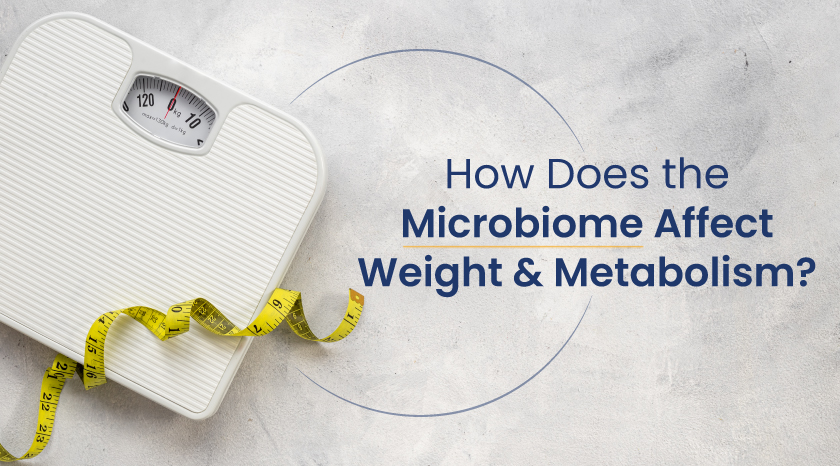In recent years, the gut microbiome has emerged as a critical factor influencing various aspects of health, including weight and metabolism. The human gut is home to trillions of microorganisms, including bacteria, fungi, and viruses, collectively known as the gut microbiome. These microorganisms play a vital role in digestive health, immune function, and even mood regulation. But how exactly does the microbiome affect weight and metabolism? Let’s explore this fascinating connection.
The Gut Microbiome and Weight Management
- Energy Harvesting from Food:
- The gut microbiome helps break down complex carbohydrates and fibers that the human digestive system cannot process on its own. Certain bacteria are more efficient at extracting calories from these foods. This process, known as energy harvesting, can influence the number of calories available to the body.
- Studies have shown that people with obesity tend to have a higher proportion of Firmicutes bacteria and a lower proportion of Bacteroidetes bacteria. This imbalance can lead to increased energy extraction from food, contributing to weight gain.
- Fat Storage:
- The gut microbiome influences the body’s ability to store fat. Certain gut bacteria can affect the production of hormones like insulin and leptin, which regulate fat storage and appetite.
- For example, a study published in Nature found that transferring the gut microbiota from obese mice to germ-free mice resulted in increased fat storage in the recipients, even without changes in diet.
- Appetite Regulation:
- Gut bacteria produce short-chain fatty acids (SCFAs) like butyrate, propionate, and acetate during the fermentation of dietary fibers. These SCFAs can influence the release of appetite-regulating hormones such as GLP-1 and PYY.
- SCFAs also communicate with the brain via the gut-brain axis to signal feelings of fullness, thereby helping to regulate food intake.
- Inflammation and Metabolic Health:
- An imbalanced gut microbiome, or dysbiosis, can lead to increased gut permeability, allowing endotoxins to enter the bloodstream. This condition, often referred to as “leaky gut,” can trigger systemic inflammation.
- Chronic inflammation is a known risk factor for insulin resistance, metabolic syndrome, and obesity. By maintaining a healthy gut microbiome, it is possible to reduce inflammation and support metabolic health.
Strategies to Support a Healthy Gut Microbiome
- Diet:
- Fiber-Rich Foods: Consuming a diet high in dietary fiber from fruits, vegetables, whole grains, and legumes supports the growth of beneficial bacteria.
- Probiotic Foods: Incorporating probiotic-rich foods like yogurt, kefir, sauerkraut, and kimchi can help introduce beneficial bacteria into the gut.
- Prebiotic Foods: Foods rich in prebiotics, such as garlic, onions, bananas, and asparagus, provide nourishment for beneficial bacteria.
- Avoiding Overuse of Antibiotics:
- Antibiotics can disrupt the balance of the gut microbiome by killing both harmful and beneficial bacteria. Limiting the use of antibiotics to necessary situations can help preserve gut health.
- Regular Exercise:
- Physical activity has been shown to positively influence the composition of the gut microbiome. Regular exercise can help increase the diversity of gut bacteria, supporting overall health.
- Adequate Sleep and Stress Management:
- Poor sleep and chronic stress can negatively impact the gut microbiome. Prioritizing good sleep hygiene and stress-reduction techniques such as meditation, yoga, or deep breathing can support gut health.
By focusing on maintaining a healthy gut microbiome, you can positively influence your weight and metabolic health, contributing to a healthier, more balanced lifestyle.
Probiotics play a crucial role in maintaining gut health by promoting a balanced microbiome, which is essential for proper digestion, nutrient absorption, and immune function. A healthy gut can prevent various digestive issues, reduce inflammation, and even enhance mental well-being. Incorporating probiotics into your daily routine can help restore and maintain this balance, particularly when faced with dietary changes, stress, or illness. BIOM 3-in-1 Probiotics are an excellent choice for comprehensive gut health support, combining prebiotics, probiotics, and postbiotics in one powerful formula. This unique blend not only replenishes beneficial bacteria but also nurtures and sustains their growth, ensuring optimal gut health and overall wellness.





